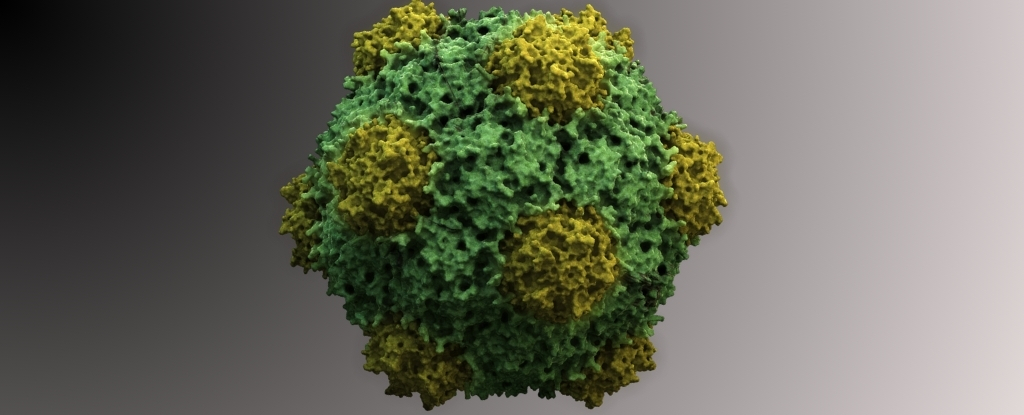A virus that infects black-eyed pea plants has shown “widespread effectiveness” in helping thwart an array of metastatic cancers in mice, researchers report in a new study, offering hope the virus might hold similar potential for humans.
Nanoparticles harvested from the cowpea mosaic virus boosted survival rates and systemically suppressed tumor growth in mice afflicted with various cancers, including breast, colon, and ovarian cancer.
Mice whose tumors had been surgically removed also showed comparable improvements after the treatment, the University of California San Diego team found.
The cowpea mosaic virus is a plant pathogen specializing in cowpeas (Vigna unguiculata), a species of legume that includes the subspecies commonly known as black-eyed peas.
The virus doesn’t directly attack cancer cells in mice, but acts as a form of immunotherapy – a treatment that helps the body’s own immune system find and destroy cancer.
The new study is part of ongoing research led by the lab of Nicole Steinmetz, a nanoengineer at the University of California San Diego.
Steinmetz and her colleagues have spent years testing cowpea mosaic virus nanoparticles as immunomodulators – substances that either suppress or, as in this case, stimulate the immune system.
The nanoparticles have previously shown promise in promoting an immune response when injected directly into a tumor, with results suggesting this treatment can help prevent cancer from spreading, and from recurring.
The researchers explain that since it’s a plant virus, the cowpea mosaic virus can’t infect mammals, yet mouse immune systems still tend to identify it as foreign.
This sparks a spirited backlash from the immune system, which is also prompted to attack the nearby tumor – as well as any future tumors that develop, their research has found.
But that’s not all, according to the new study. The nanoparticles don’t have to be injected directly into tumors to succeed, the study suggests, but can also be delivered systemically to impede metastasis and increase survival rates for a wide range of cancers.
“Here, we do not treat established tumors or metastatic disease – we prevent them from forming. We are providing a systemic treatment to wake up the body’s immune system to eliminate the disease before metastases even form and settle,” Steinmetz says.
Steinmetz and her colleagues began the new study by cultivating black-eyed pea plants in the lab and infecting them with the cowpea mosaic virus. The virus went to work replicating itself, creating millions of new copies for the researchers to collect.

Steinmetz notes that the resulting nanoparticles were already suitable for administering to mice in the experiments and required no modifications. They are “nature’s powerful nanoparticles, as produced in black-eyed pea plants,” she says.
The researchers injected those nanoparticles into mice, then challenged the mice with metastatic tumors a week later, including breast, colon, and ovarian cancers as well as melanoma.
Compared with control groups of untreated mice, those with the nanoparticle treatment showed reduced tumor growth and increased survival rates.
The same was true even a month later, when the mice were again challenged with new tumors. As before, mice given nanoparticles from the cowpea mosaic virus fared significantly better than their untreated counterparts.
The study also featured experiments to test the nanoparticles’ effectiveness after surgery to remove tumors. This too showed less tumor growth and higher survival rates among treated mice, which the authors say is especially exciting.
“Even if you perform surgery to remove the tumors, no surgery is perfect and there is outgrowth of metastasis if no additional treatment is provided,” Steinmetz says.
“Here, we use our plant virus nanoparticles after surgery to boost the immune system to reject any residual disease and prevent circulating tumor cells from metastatic seeding,” she adds. “We found that it works really, really well!”
It remains to be seen whether it works as well in humans, but this study is a promising step, and the research team is already planning the next ones.
The researchers say future studies will seek to reveal whatever mechanism produces the results seen in the new study and establish the treatment’s safety in other animals, paving the way for eventual clinical trials in humans.
The study was published in Advanced Science.





